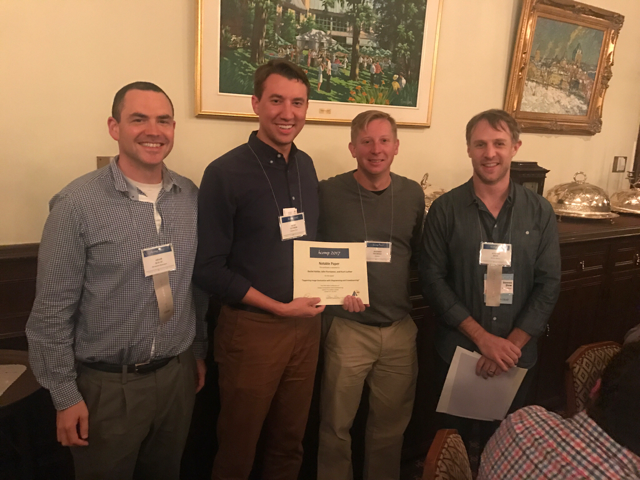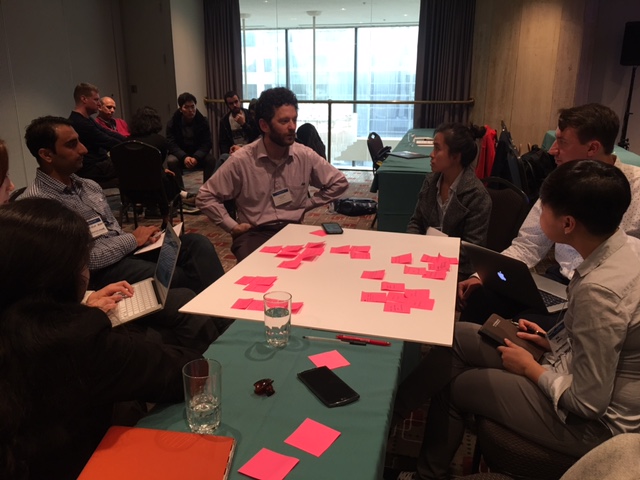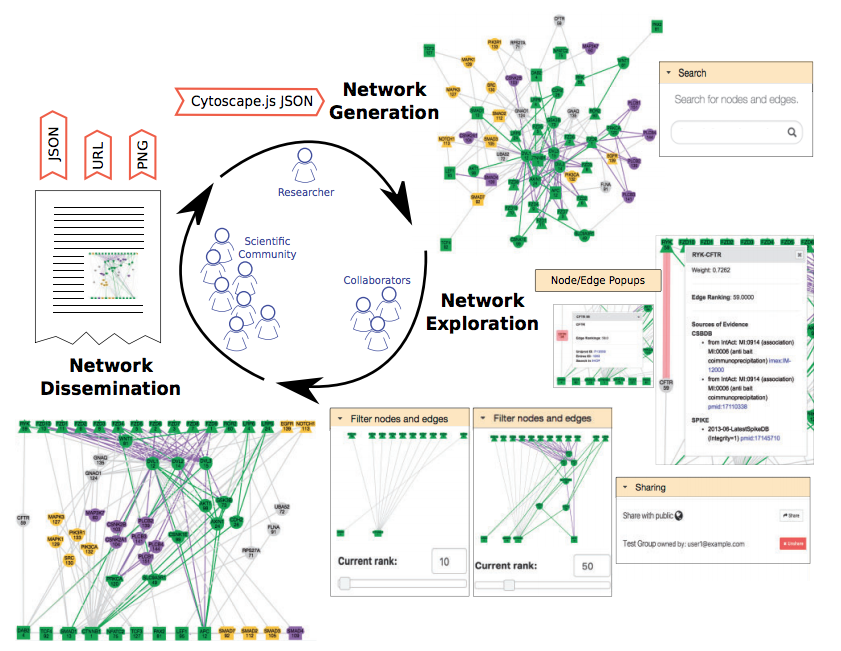
Our paper on crowdsourced image geolocation and diagramming won the Notable Paper Award at HCOMP 2017. Congrats to Crowd Lab alums Rachel Kohler and John Purviance, co-authors of the paper, for this recognition. In the photo above, Dr. Luther receives the award certificate on behalf of his co-authors from Adam Kalai and Steven Dow (HCOMP 2017 co-chairs) and Jeff Nichols (Awards committee).
You can read the award-winning paper, Supporting Image Geolocation with Diagramming and Crowdsourcing, in the online proceedings.


